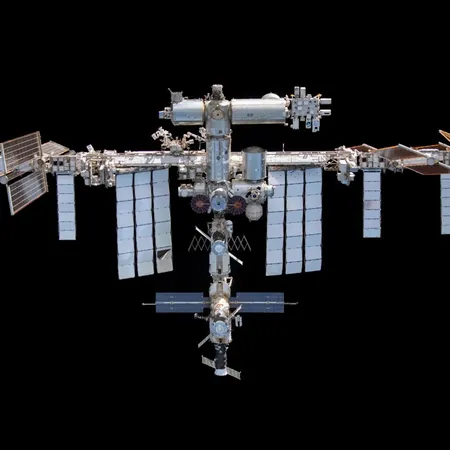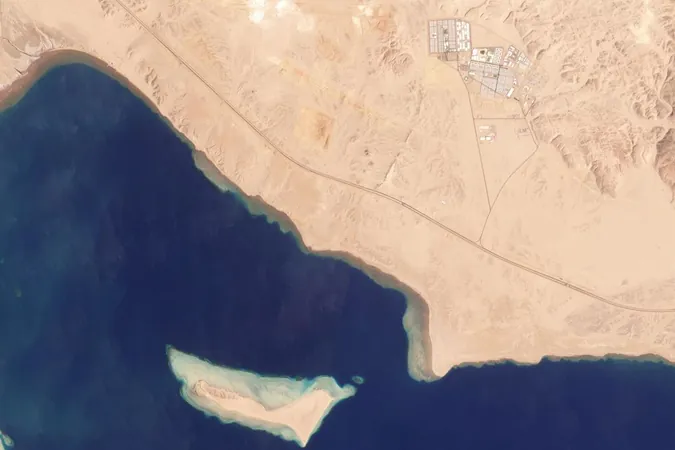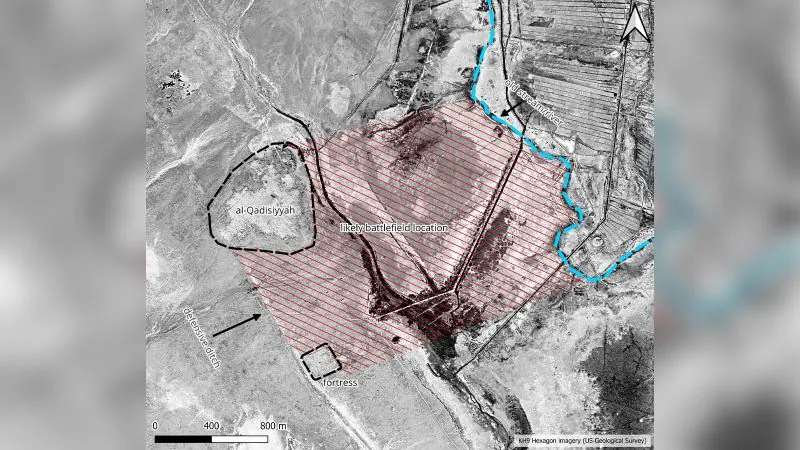
Tensions Rise Between NASA and Roscosmos Over ISS Air Leak Concerns!
2024-11-14
Author: Lok
In a recent development that has raised eyebrows in the space community, NASA and Russia’s Roscosmos are at odds regarding the air leak observed in the International Space Station (ISS), particularly within the Russian segment. The difference in opinions has left many worried about the potential risks involved, with NASA cautioning about what they term a “catastrophic failure” of the Russian module.
The issue came to the forefront during a meeting of NASA’s ISS Advisory Committee on November 13th. During this meeting, officials recalled discussions held with Roscosmos counterparts in Moscow back in September, specifically focused on the ongoing air leak troubles plaguing the station.
The primary focus of concern is a small but persistent air leak located in the vestibule of the Zvezda service module, known as PrK. This leak has been under observation for several years and requires crews to isolate PrK from the rest of the ISS’s atmosphere when not accessing the Progress cargo spacecraft docked there.
NASA astronaut Bob Cabana, who now serves as the committee chair, highlighted the ongoing discord, stating that while investigations are being conducted, U.S. and Russian technical teams have yet to reach a consensus regarding the leak’s origin and the potential gravity of the issue. Russian engineers attribute the cracks to “high cyclic fatigue” from micro-vibrations, while NASA suggests a more complex interaction of factors, including pressure variances, mechanical stress, material weaknesses, and environmental effects.
According to a report released by NASA's Office of Inspector General earlier this year, both agencies are channeling their attention towards assessing internal and external welds in search of the leak's root cause—a position not observed at any other point in the station.
Despite initial concerns following the leak's detection back in 2019, a briefing from September revealed that NASA officials were optimistic, having decreased the air loss rate by a third after recent repairs. However, the station crews remain alert and cautious: Michael Barratt, a NASA astronaut who returned to Earth last month, emphasized the necessity of taking precautions whenever the PrK hatch is opened.
The disagreement on the severity of the leak has further complicated matters, with Roscosmos maintaining that operations can continue safely, while NASA expresses doubts about the structural integrity of PrK. “The two teams find themselves at a stalemate,” Cabana remarked, emphasizing the need for clearer communication between the agencies.
To bridge the differences, a joint recommendation was made to seek external experts from academia and industry to provide an additional layer of analysis—an initiative that may take some time to implement. Meanwhile, NASA has engaged an independent team to further investigate the matters at hand, underscoring the urgent need to find a resolution.
As the ISS ages and wear and tear becomes increasingly evident, one can’t help but wonder what the future holds for this remarkable international collaboration. With the stakes high and tensions simmering, the space community watches closely, hoping for a coordinated response that ensures the safety of astronauts aboard the aging station.
Stay tuned as this story develops—because in the realm of space exploration, every decision could have cosmic implications!





 Brasil (PT)
Brasil (PT)
 Canada (EN)
Canada (EN)
 Chile (ES)
Chile (ES)
 España (ES)
España (ES)
 France (FR)
France (FR)
 Hong Kong (EN)
Hong Kong (EN)
 Italia (IT)
Italia (IT)
 日本 (JA)
日本 (JA)
 Magyarország (HU)
Magyarország (HU)
 Norge (NO)
Norge (NO)
 Polska (PL)
Polska (PL)
 Schweiz (DE)
Schweiz (DE)
 Singapore (EN)
Singapore (EN)
 Sverige (SV)
Sverige (SV)
 Suomi (FI)
Suomi (FI)
 Türkiye (TR)
Türkiye (TR)